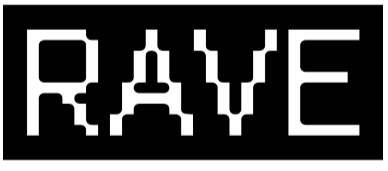Three phases of the RAVE project

The RAVE (Road Accident/ Violence Events) project is a research initiative focused on investigating the complex factors that contribute to road accidents, with the goal of creating a safer and more sustainable future for all. The project is based on the premise that conventional understandings of road accidents are limited in their attribution of blame to individual drivers, and that a more nuanced understanding is necessary to identify and address the underlying causes of these events.
Over the course of three phases, the RAVE project will explore the entanglements between people, machines, and infrastructure that contribute to road accidents. The first phase involves a thorough review of existing literature and expert knowledge, as well as interviews with experts in the field. This will lay the groundwork for the subsequent phases, which involve direct engagement with road accident participants and other stakeholders in the development of innovative solutions to the challenges of automobility.
Through this collaborative and interdisciplinary approach, the RAVE project aims to identify new ways of understanding and addressing the complex challenges of road safety, and to develop sustainable solutions that benefit everyone involved. The following text provides a more detailed overview of the three phases of the project, and the methods and approaches used in each.
- EXPERT INTERVIEWS: During the first phase of the project, which takes place from June 2022 to January 2023, the research team will conduct a thorough review of available literature and expert knowledge related to automobility and road accidents. This pre-research will serve as a foundation for the rest of the project, providing valuable insights and identifying key areas for exploration. In addition to this, the team will conduct interviews with experts in the field to gain further insights and perspectives on the complex relationships between humans, machines, and infrastructure that contribute to road accidents. These interviews will help the team to refine their research questions and hypotheses, and to develop a comprehensive understanding of the topic. Additionally, the team will recruit communication partners for the following phase - participants who have been involved in road accidents and are willing to share their experiences and perspectives.
- GO-ALONG INTERVIEWS: The second phase of the project, which runs from February to August 2023, involves ethnomethodological interviews with communication partners who have been involved in road accidents. These interviews will take place directly at incident sites, providing an opportunity to gather firsthand accounts of the complex factors that contribute to road accidents. Through these interviews, the research team will gain a deeper understanding of the experiences of those involved in road accidents and the complex relationships between people, machines, and infrastructure. Additionally, communication partners for the next phase will be recruited during this phase.
- SOCIAL LABS: The final phase of the project, which takes place from September 2023 to March 2024, involves a "social labs" approach to finding solutions to the negative impacts of motoring. The research team, communication partners, and other stakeholders will work together to identify innovative solutions to the problems associated with automobility. These solutions will be developed and tested in a collaborative, iterative process, with the aim of creating a more sustainable, equitable, and safe future for all. This phase will conclude the project by offering concrete recommendations for improving road safety and addressing the broader challenges associated with automobility.
